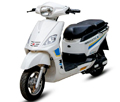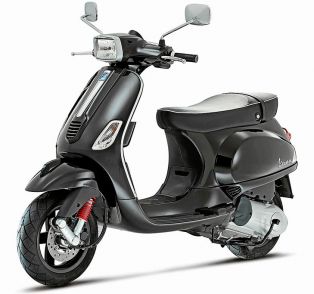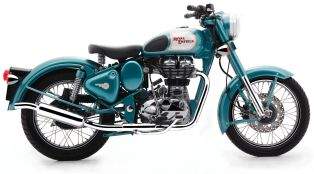The world is going head over heels for electric cars today, thanks to Tesla Motors. Tesla has revolutionized the electric car industry with their space age technology and high power density battery packs. They have made a few decades worth of progress in a few short years. Their models have garnered an increasing admiration from world over to the point that some people like to call the Model X the best car ever.
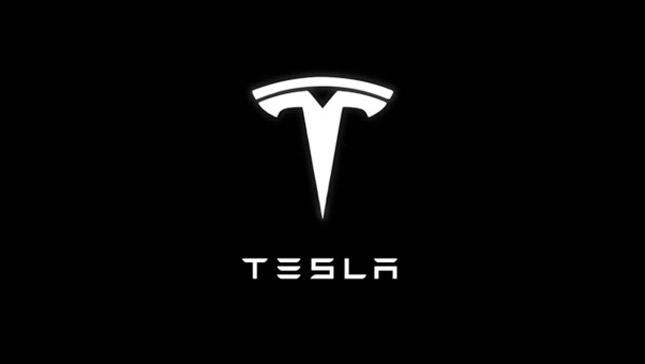 When Tesla announced the Model 3 earlier this year, fans went berserk. The enthusiasm with which almost 400,000 people have paid the steep $1000 pre-booking fee is unprecedented. There is a ripe market opening for electric cars and the fear of missing out, or FOMO, has pushed all the major automobile manufacturers around the globe into a scramble for developing their own electric car technology.
When Tesla announced the Model 3 earlier this year, fans went berserk. The enthusiasm with which almost 400,000 people have paid the steep $1000 pre-booking fee is unprecedented. There is a ripe market opening for electric cars and the fear of missing out, or FOMO, has pushed all the major automobile manufacturers around the globe into a scramble for developing their own electric car technology.
This raises another question- with all the interest garnered by electric cars, where does the future of electric bikes stand? Are electric bikes the next big thing?
The idea of electric bikes is not a new one. The first patent for an electric bicycle was filed ages ago in 1895, but the idea never caught traction. Primary reasons for this are the limited range, expensive and bulky batteries, hideous aesthetics and unreasonable prices. The consumer base has preferred bikes with IC engines since the dawn of modern day two-wheeled transportation and things have all but changed to this day.
However, environmental woes around the globe have pushed manufacturers to look for an alternative solution to vehicles with IC engines and electric vehicles (or EVs) are the best bet. Given the sheer number of two wheelers sold in globally, especially in developing countries, developing new and better electric bikes has become more of a necessity.
Lightening, an American electrical motorcycle manufacturer has produced the LS218, a superbike which cannot be praised enough. The LS218 is the fastest production motorcycle, gasoline or electrical. Richard Hatfield, the founder and CEO of lightening, has stated that, “Solar energy fueled vehicles are not just a theoretical concept to be realized sometime in the distant future, but a reality today that can compete head to head with gasoline powered vehicles”. And his company has achieved many feats to support his claim. In 2013 Lightening made history at Pikes Peak by becoming the first electric motorcycle to beat some of the world’s fastest petrol-powered motorcycles at a major motorsports event.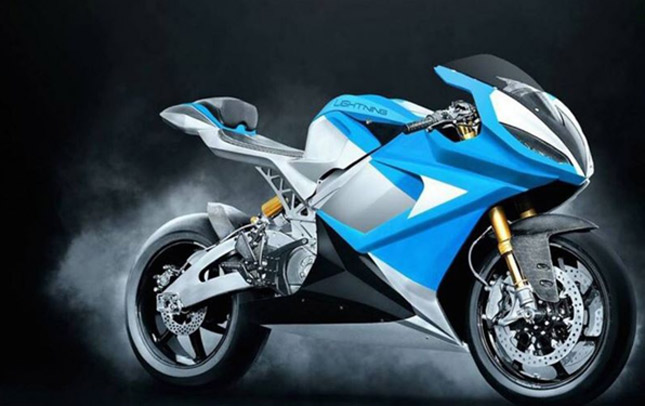 Even major players have joined the charade with the likes of Suzuki, Honda, Yamaha, BMW, Kawasaki etc. launching electric bikes of their own.Harley Davidson has launched the Project Livewire, where people can test ride the first ever electric Harley Davidson.
Even major players have joined the charade with the likes of Suzuki, Honda, Yamaha, BMW, Kawasaki etc. launching electric bikes of their own.Harley Davidson has launched the Project Livewire, where people can test ride the first ever electric Harley Davidson.
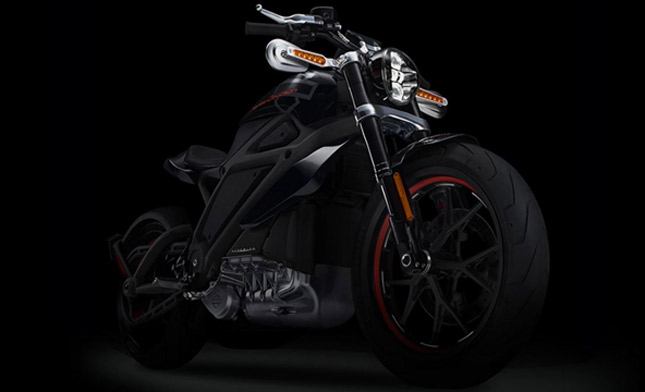 Another rising name in the electric bike segment is Zero Motorcycles. With a line-up of six motorcycles, Zero has an impressive collection to boast of. Their most performance enhanced product, the Zero SR can crack a ton in 3.3 seconds and yet maintain a range of around 300 kilometers.The motorcycles from Zero are expensive with their range starting from US $8,495 and going all the way up to US $15,995 and that has restricted their popularity.
Another rising name in the electric bike segment is Zero Motorcycles. With a line-up of six motorcycles, Zero has an impressive collection to boast of. Their most performance enhanced product, the Zero SR can crack a ton in 3.3 seconds and yet maintain a range of around 300 kilometers.The motorcycles from Zero are expensive with their range starting from US $8,495 and going all the way up to US $15,995 and that has restricted their popularity.
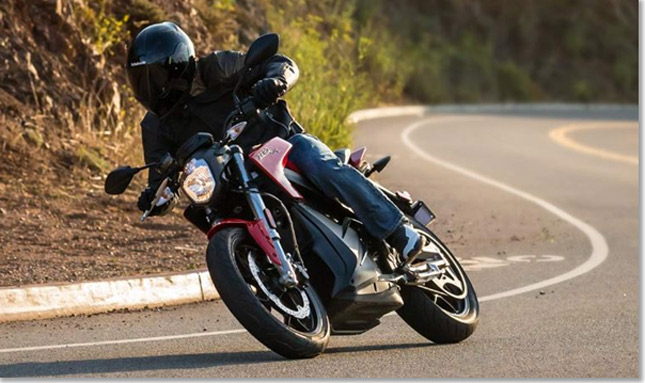 The Indian electric motorcycle scenario commenced over a decade ago with the advent of the Hero electric scooters and the YObykes. But these electric scooters could never garner a large fan base. Coming to present day, another desi company, Tork Motorcycles is all set to unleash the frenzy of electric bikes in India.
The Indian electric motorcycle scenario commenced over a decade ago with the advent of the Hero electric scooters and the YObykes. But these electric scooters could never garner a large fan base. Coming to present day, another desi company, Tork Motorcycles is all set to unleash the frenzy of electric bikes in India.
Tork Motorcycles, a Pune based start-up, grabbed many eyeballs two years ago when they ditched the IC engine out of a Yamaha FZ and turned it into a fully electric bike, achieving 0-100 times of just 8.7 short seconds. Their other impressive feats include a podium finish in the 2009 and 2010 Isle of Man TTX-GP, the electric version of the prestigious Isle of Man TT cross–country race.
Now they are all set to launch a completely indigenous bike, the T6X, on the 1st of October 2016. In fact, their official website is currently showing a count-down for the launch. The T6X is comparable to most small-engine commuter bikes available in the market. It is expected to have a range of 100 kms with a top speed of 85 kmph. It will also come packed with segment-first features like a completely electronic display, navigation, quick charge. Tork is expected to price the T6X very competitively and that will surely attract many buyers.
Tork Motorcycles, founded by Kapil Shelke - a mechanical engineer from Pune, has high hopes for the future. They have received funding from tech biggies like Bhavish Agarwal and Ankit Bhati, founders of Ola, and CoCubes co-founder and CEO Harpreet Grover. Their newly set up plant at Chakan near Pune has an annual capacity of rolling out 50,000 units. They aim to launch the bike in Pune, Delhi, Bengaluru, Mumbai and Hyderabad and sell 10,000 units in the first year. A well laid out network of charging stations is also in their books with a plan to set up at least 100 charging stations in Pune, Delhi and Bengaluru in the first phase followed by Mumbai and Hyderabad in the second phase.
The automotive industry as a whole is thus shifting towards EVs. All these developments make one thing certain - the future of automotive industry is going to be everything but unexciting. With breath-taking technologies developing in all sectors each passing day, we have a lot to look forward to. So, are electric bikes the next big thing? Hell yes!
By: Nehal Chaliawala
 When Tesla announced the Model 3 earlier this year, fans went berserk. The enthusiasm with which almost 400,000 people have paid the steep $1000 pre-booking fee is unprecedented. There is a ripe market opening for electric cars and the fear of missing out, or FOMO, has pushed all the major automobile manufacturers around the globe into a scramble for developing their own electric car technology.
When Tesla announced the Model 3 earlier this year, fans went berserk. The enthusiasm with which almost 400,000 people have paid the steep $1000 pre-booking fee is unprecedented. There is a ripe market opening for electric cars and the fear of missing out, or FOMO, has pushed all the major automobile manufacturers around the globe into a scramble for developing their own electric car technology.This raises another question- with all the interest garnered by electric cars, where does the future of electric bikes stand? Are electric bikes the next big thing?
The idea of electric bikes is not a new one. The first patent for an electric bicycle was filed ages ago in 1895, but the idea never caught traction. Primary reasons for this are the limited range, expensive and bulky batteries, hideous aesthetics and unreasonable prices. The consumer base has preferred bikes with IC engines since the dawn of modern day two-wheeled transportation and things have all but changed to this day.
However, environmental woes around the globe have pushed manufacturers to look for an alternative solution to vehicles with IC engines and electric vehicles (or EVs) are the best bet. Given the sheer number of two wheelers sold in globally, especially in developing countries, developing new and better electric bikes has become more of a necessity.
Lightening, an American electrical motorcycle manufacturer has produced the LS218, a superbike which cannot be praised enough. The LS218 is the fastest production motorcycle, gasoline or electrical. Richard Hatfield, the founder and CEO of lightening, has stated that, “Solar energy fueled vehicles are not just a theoretical concept to be realized sometime in the distant future, but a reality today that can compete head to head with gasoline powered vehicles”. And his company has achieved many feats to support his claim. In 2013 Lightening made history at Pikes Peak by becoming the first electric motorcycle to beat some of the world’s fastest petrol-powered motorcycles at a major motorsports event.
 Even major players have joined the charade with the likes of Suzuki, Honda, Yamaha, BMW, Kawasaki etc. launching electric bikes of their own.Harley Davidson has launched the Project Livewire, where people can test ride the first ever electric Harley Davidson.
Even major players have joined the charade with the likes of Suzuki, Honda, Yamaha, BMW, Kawasaki etc. launching electric bikes of their own.Harley Davidson has launched the Project Livewire, where people can test ride the first ever electric Harley Davidson.
 Another rising name in the electric bike segment is Zero Motorcycles. With a line-up of six motorcycles, Zero has an impressive collection to boast of. Their most performance enhanced product, the Zero SR can crack a ton in 3.3 seconds and yet maintain a range of around 300 kilometers.The motorcycles from Zero are expensive with their range starting from US $8,495 and going all the way up to US $15,995 and that has restricted their popularity.
Another rising name in the electric bike segment is Zero Motorcycles. With a line-up of six motorcycles, Zero has an impressive collection to boast of. Their most performance enhanced product, the Zero SR can crack a ton in 3.3 seconds and yet maintain a range of around 300 kilometers.The motorcycles from Zero are expensive with their range starting from US $8,495 and going all the way up to US $15,995 and that has restricted their popularity.
 The Indian electric motorcycle scenario commenced over a decade ago with the advent of the Hero electric scooters and the YObykes. But these electric scooters could never garner a large fan base. Coming to present day, another desi company, Tork Motorcycles is all set to unleash the frenzy of electric bikes in India.
The Indian electric motorcycle scenario commenced over a decade ago with the advent of the Hero electric scooters and the YObykes. But these electric scooters could never garner a large fan base. Coming to present day, another desi company, Tork Motorcycles is all set to unleash the frenzy of electric bikes in India.Tork Motorcycles, a Pune based start-up, grabbed many eyeballs two years ago when they ditched the IC engine out of a Yamaha FZ and turned it into a fully electric bike, achieving 0-100 times of just 8.7 short seconds. Their other impressive feats include a podium finish in the 2009 and 2010 Isle of Man TTX-GP, the electric version of the prestigious Isle of Man TT cross–country race.
Now they are all set to launch a completely indigenous bike, the T6X, on the 1st of October 2016. In fact, their official website is currently showing a count-down for the launch. The T6X is comparable to most small-engine commuter bikes available in the market. It is expected to have a range of 100 kms with a top speed of 85 kmph. It will also come packed with segment-first features like a completely electronic display, navigation, quick charge. Tork is expected to price the T6X very competitively and that will surely attract many buyers.
Tork Motorcycles, founded by Kapil Shelke - a mechanical engineer from Pune, has high hopes for the future. They have received funding from tech biggies like Bhavish Agarwal and Ankit Bhati, founders of Ola, and CoCubes co-founder and CEO Harpreet Grover. Their newly set up plant at Chakan near Pune has an annual capacity of rolling out 50,000 units. They aim to launch the bike in Pune, Delhi, Bengaluru, Mumbai and Hyderabad and sell 10,000 units in the first year. A well laid out network of charging stations is also in their books with a plan to set up at least 100 charging stations in Pune, Delhi and Bengaluru in the first phase followed by Mumbai and Hyderabad in the second phase.
The automotive industry as a whole is thus shifting towards EVs. All these developments make one thing certain - the future of automotive industry is going to be everything but unexciting. With breath-taking technologies developing in all sectors each passing day, we have a lot to look forward to. So, are electric bikes the next big thing? Hell yes!
By: Nehal Chaliawala





